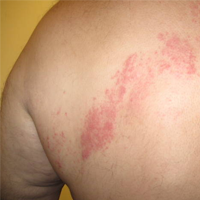Do You Know Someone Suffering From PHN
Most of us are familiar with Shingles, the painful and intense illness people sometimes call “the adult version of Chicken Pox.” What is lesser known is that of the 800,000 Americans who develop Shingles this year, 20% will go on to experience Post Herpetic Neuralgia or PHN.
PHN is often a long-term illness that can cause extreme pain and sensitivity for years. One patient’s skin was so sensitive that he couldn’t button his shirt, ride in a car, or even sleep normally (he slept sitting up for an amazing six and a half years!).
Can we give patients a pill or a shot that will relieve or cure PHN?
Sadly, no. This illness is very difficult to treat for several daunting reasons:
- Patients’ nerves can be damaged by the Varicella-Zoster viruses. Damaged nerves lead to long-term problems.
- The viruses sometimes set up a chronic infection state in a patient’s tissues and nerves, preventing complete healing from taking place. The infection can go on and on, sometimes for years, even when treated.
- Individual responses to various forms of treatment vary widely. What works for one person may not bring any improvement or relief for another person.
Dealing with this kind of pain for a long period of time can cause depression and sleep problems. Studies indicate that the same biochemicals that intensify pain can also cause and intensify depression. This depression is classified as reactive depression, and is reversible with treatment.
It is quite different from endogenous depression which is caused by chemical imbalances. Understanding what is happening to you, and why, can go a long way in helping you to deal with it successfully. And of course, medical treatments can help even more.
Some years ago I developed a topical analgesic that helps relieve the pain of PHN. Thousands of patients have used it over the years to dramatically reduce their symptoms.
If you or someone you know is suffering from PHN, do all you can to educate them and yourself about effective treatments and nutrition. Through proper treatment, the effects of PHN can be far less devastating.



